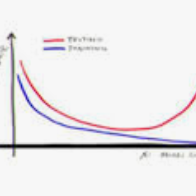Supervised deep learning has achieved remarkable success in various applications. Successful machine learning application however depends on the availability of sufficiently large amount of data. In the absence of data from the target domain, representative data collection from multiple sources is often needed. However, a model trained on existing multi-source data might generalize poorly on the unseen target domain. This problem is referred to as domain shift. In this paper, we explore the suitability of multi-source training data selection to tackle the domain shift challenge in the context of domain generalization. We also propose a microservice-oriented methodology for supporting this solution. We perform our experimental study on the use case of building energy consumption prediction. Experimental results suggest that minimal building description is capable of improving cross-building generalization performances when used to select energy consumption data.
翻译:受监督的深层次学习在各种应用中取得了显著成功。但是,成功的机器学习应用取决于能否获得足够大量的数据。在缺乏目标领域的数据的情况下,往往需要从多种来源收集具有代表性的数据。然而,在现有的多来源数据方面受过培训的模型可能无法在看不见的目标领域一概而论。这个问题被称为领域转移。在本文中,我们探讨了多来源培训数据选择是否适合解决在领域一般化背景下的域变挑战。我们还提出了支持这一解决方案的面向微观服务的方法。我们开展了关于能源消费预测的使用案例的实验研究。实验结果表明,在选择能源消费数据时,最低限度的建筑描述能够改进跨建筑的通用性表现。


